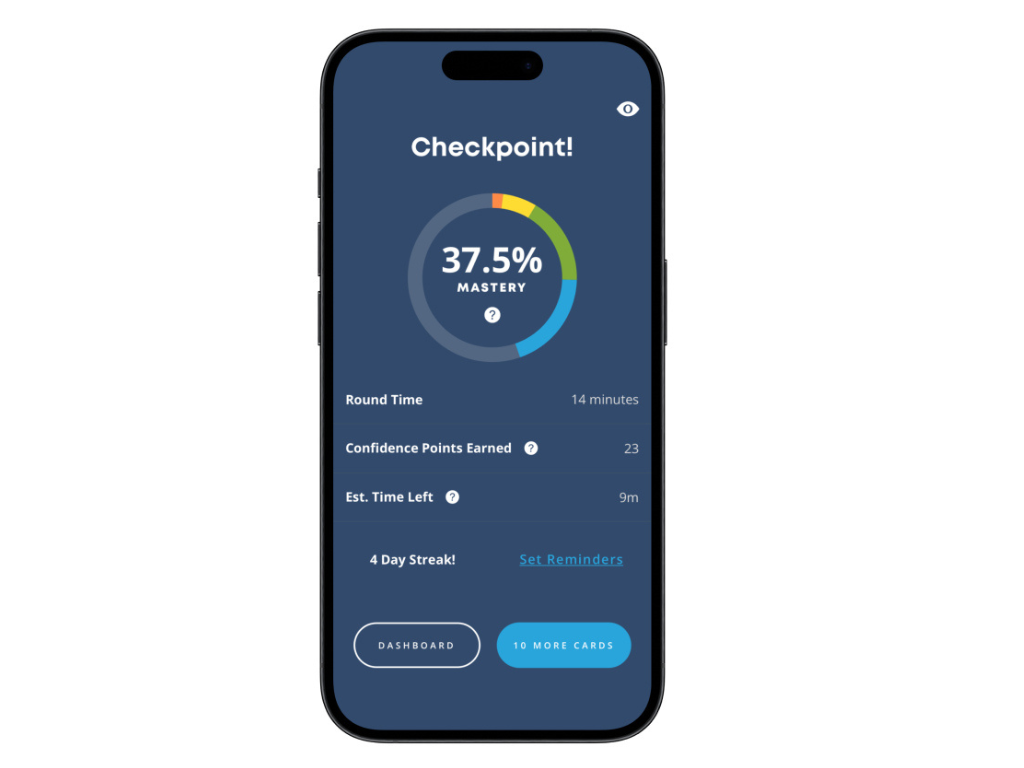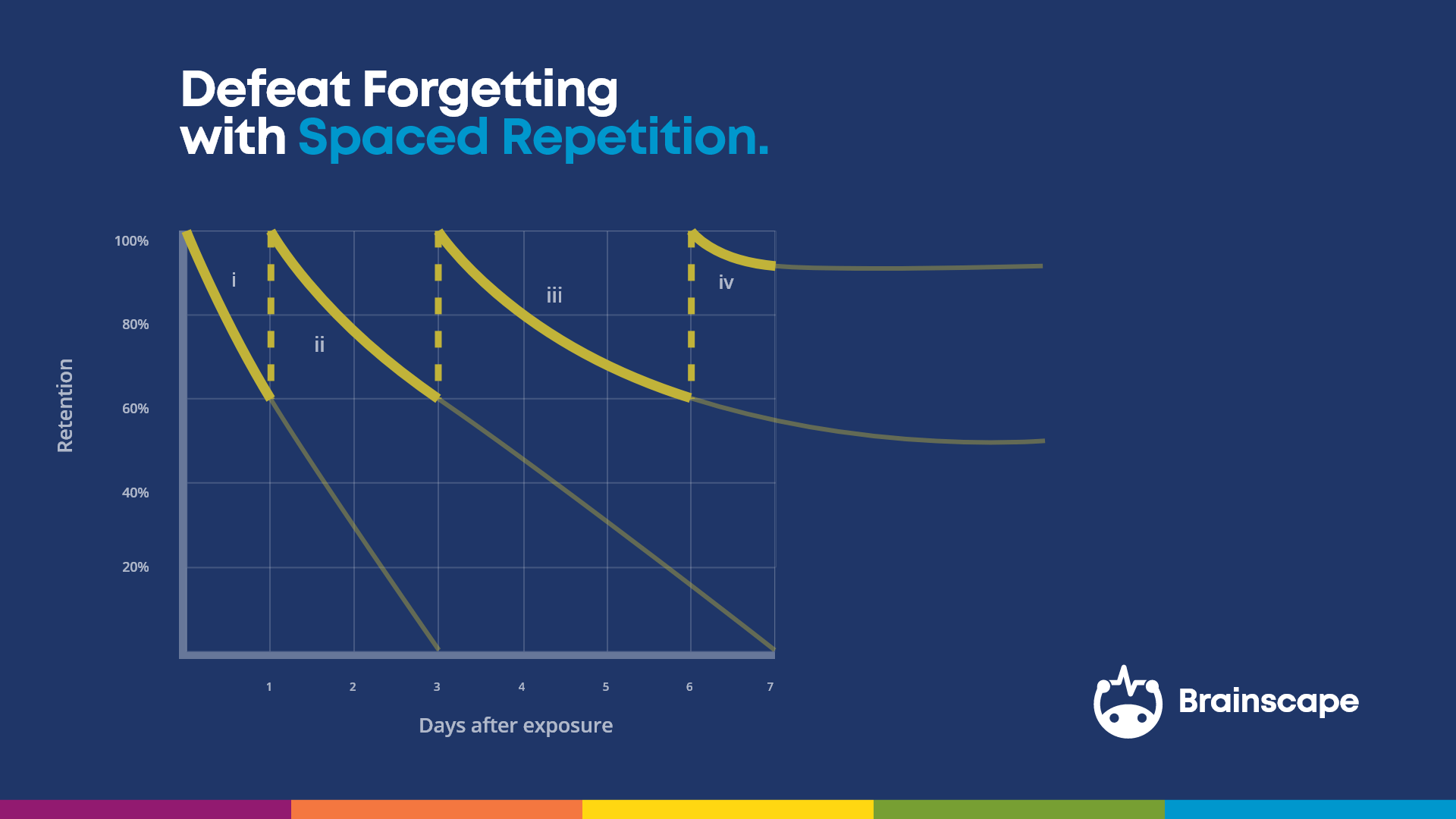I could easily give you 10 tips on how to pass the Praxis Biology 5236 the first time around: something like “know what to expect by studying Praxis’s exam blueprints” or “take a practice test early on in your prep” or “lean on visual aids”, etc.
But I won’t waste your time.
All of those tips can get you marginal gains in performance—and we explore them in detail in our Praxis 5004 and Praxis 5005 guides—but in this article, I’m going to go straight for the jugular… the real secret sauce to absolutely crushing the Praxis Biology 5236, without spending hours poring over dog-eared biology textbooks and YouTube advice videos.
The answer?
A Praxis study tool shockingly few people actually know about!
Praxis has a study tool few people know about
When it comes to studying for Praxis Biology 5236 (or any of their exams really), one of students’ biggest frustrations is that it’s not always clear exactly what they.
Yes, Praxis’s Biology study companion gives you a detailed list of topics but it’s then up to you to disinter your old biology textbooks and lecture notes—or get stuck in a YouTube blackhole—to make sure you know your ecology, environment, evolution, cell biology, plants, photosynthesis, cellular respiration, prokaryotes, eukaryotes, bacteria, viruses, etc. inside out.
As a result, you can whittle away hours on unnecessary review, while not spending enough time on learning the really crucial facts. (This is not even to mention how overwhelming and anxiety-inducing studying for the Praxis Biology 5236 exam can feel.)
That Praxis study tool I just mentioned?
It eliminates ALL of this uncertainty, inefficiency, and anxiety.
Praxis has partnered with Brainscape (the flashcard study app) to distill everything you need to know—every biology concept the 5236 exam tests—into a collection of 2,600+ digital flashcards.
So all those concepts you were flipping through textbooks or doom scrolling Google to learn about: they’ve all been conveniently collated and condensed into these flashcards for you.
Boom. The pain of deciding what’s important and where to find it is officially over. Praxis has partnered with Brainscape to create the perfect study tool for the job.
By the way, they also have study guides and flashcard packs for these other Praxis exams (with more on the way):
- Study guide: Praxis Elementary Education: Social Studies (5004)
- Flashcards: Praxis Elementary Education: Social Studies (5004)
- Study guide: Praxis Elementary Education: Science (5005)
- Flashcards: Praxis Elementary Education: Science (5005)
- Study guide: Praxis Social Studies: Content Knowledge (5081)
- Flashcards: Praxis Social Studies: Content Knowledge (5081)
But there’s more to these flashcards than just conveniently breaking down the right content. It’s also about the study algorithm that controls how these concepts are delivered to your brain…
Faster learning through spaced repetition
For starters, paper flashcards are so last century. These puppies are digital and, wow, are they awesome. Brainscape has a beautiful and intuitive interface that makes it ridiculously attractive. It also has a detailed study metrics page and frequent study progress “checkpoints” to keep you motivated.

(Here’s how using metrics can actually motivate you to study more, just like a Fitbit can motivate you to exercise more.)
The content is the next draw. As I said, having everything you need to know already boiled down into a set of flashcards eliminates half the struggle of studying for the Praxis Biology exam. But where Brainscape really shines is in its study algorithm: the way it delivers biology concepts to your brain, and then repeatedly tests you on those concepts until you are 100% confident in them.
The study algorithm is rooted in the cognitive science of spaced repetition (and other fancy learning tactics like active recall and metacognition), which is essentially how our brains are hardwired to learn. (It’s amazing that if you learn the way your brain is designed to learn, you’ll retain information quicker. TWICE as fast, in fact.)
Spaced repetition involves the repeated, staggered exposure to concepts over time. The less you know something, the more often you should see it. The better you know something, the less often you need to see it. Done this way, the brain quickly picks up on new concepts and retains them for the long term. This is the bedrock of science upon which the Brainscape app has been built.

So what Praxis has put together with Brainscape is not only quality, simplified content that aligns with the Biology 5236 test plan; but also a delivery system that allows students to learn much more efficiently.
Tips for getting the most out of digital flashcards
Be brutally honest with your self-confidence ratings: When studying your Praxis Biology 5236 flashcards in Brainscape, you’ll be prompted rate how well you knew the answer to a question on a scale of 1 to 5, with 1 being “not at all” and 5 being “perfectly”.
While the entire schooling system places a heavy emphasis on “scoring high”, the goal here is to score honestly; to rate how confident you are in that particular concept. This informs Brainscape’s study algorithm how frequently to show you that card again. So if you overestimate your confidence, you won’t see it as often as you need to in order to progress quickly.
Be stingy with the “5’s”: Only rate a concept a “5” if you know it so well, you won’t likely forget it again for many months. In fact, it’s best to wait until a card has been a "4" for at least a few repetitions before you rate them a “5”.
Dedicate 30 minutes each day to working through Praxis’s Biology 5236 flashcards. Even a short 5-minute flashcard study round packs a wallop, facilitating much more potent learning than any amount of reading or watching videos. But regardless of whether you manage to squeeze in many short sessions or one long session in your day, with committed, daily flashcard study, you’ll quickly find your retention of Praxis’s Biology 5236 content soaring.
Download mobile decks to learn offline. If you download your flashcards in Brainscape when you’re online, you can study them anytime, anywhere; even if you don’t have an internet connection. This is a great way to kill any downtime you might have, such as between classes, on the bus, at the dentist’s office, or while flying at 37,000 feet in the air.
Told ya: the ultimate “secret sauce!”
With everything you need to know contained in an app in your pocket, which you can whip out anytime, anywhere to sneak in powerful study sessions (for even as short as 5 or 10 minutes at a time), Brainscape’s Praxis Biology 5236 flashcards are a game changer and the ultimate secret sauce on your journey to becoming an educator.
Praxis and Brainscape have also released flashcards and study guides for the following Praxis exams (with more on the way):
Praxis Elementary Education: Social Studies (5004)
Praxis Elementary Education: Science (5005):
Praxis Social Studies: Content Knowledge (5081)
More coming soon!
And check out the following video...
I hope these resources make your life infinitely easier!
